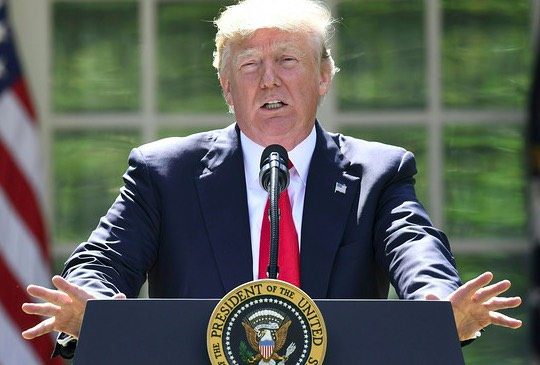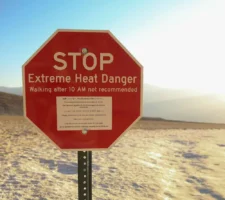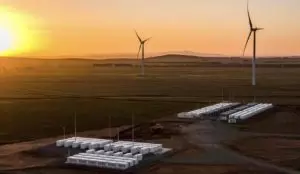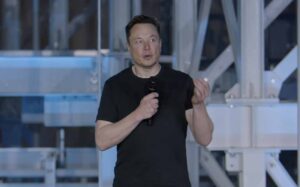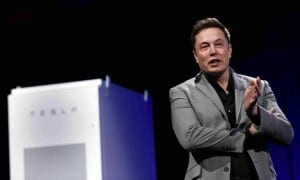
“Covfefe”. The mysterious tweet from President Donald Trump might just summarise how the world ought to react after the person laughably referred to as the “leader of the free world” decided to take the world’s biggest economy and second biggest emitter out of the Paris climate treaty.
“Covfefe.” Unlike the tweet, this decision to quit the Paris climate deal is a deliberate act: A deliberate F.U. you to the world, and sadly inevitable when an ignorant buffoon is guided by a self described institutional anarchist (advisor Steve Bannon) and a cabal of self-serving climate deniers, economic nationalists and fossil fuel advocates.
In any case, it should be no surprise. Trump has long made clear that he thinks that climate change is a Chinese hoax, and had promised throughout his campaign to pull the US out of the treaty, joining Syria and Nicaragua as the only countries not inside the unprecedented global deal.
Since his inauguration he has removed climate science from the web-sites of government organisations, stripped funding for climate research and clean energy development plans, and promised to reboot the coal industry.
And he has done so despite the pleas of other world leaders and most business leaders in the US and the world over.
In the White House Rose Garden on Friday morning, Trump didn’t actually cite the climate science but said something equally delusional, that the US was quitting the Paris deal because the rules were stacked against it, and would cause factories to close, jobs to be lost, and even blackouts and brownouts to occur.
The opposite is true. In 2015, the US cut its emissions by 1.7 per cent, setting it well on the path to meeting its targets, and at the same time clean energy jobs outstripped the oil and gas industry.
The dramatic shifts in technology meant that the US commitment to Paris promised more economic gain than economic pain.
Trump claimed that all the good coal jobs were shifting from the US to China and India. It’s an absurdity. The decision was based on absurd calculations from one of the more outrageous climate denier think tanks in the US.
Tesla founder Elon Musk quickly made good on his promise to quit Trump’s advisory council and noted China would produce as much clean energy by 2030 as the US produces in total energy now.

Laughably, Trump said the US was prepared to negotiate its way back into the deal on its terms. That is not going to happen. Europe has already rejected that.
If we stay in the Paris deal, Trump said, the world will laugh at us.
No, Mr President, the world is laughing at you now, and crying too. This is a mistake of such historic proportions, and of such idiocy, that it would do immense damage to US and its position in the world. Already, Mexico, Canada and Germany are talking of potential trade sanctions.
So what does it mean?
As far as temperatures go, there is a range of thinking that the absence of America – the world’s second biggest polluter, the third biggest emitter per capita behind Australia, and the biggest single contributor since the Industrial Revolution – might mean anything from an extra 0.2°C to 0.5°C over the long term.
But those estimates, whatever they mean, are based on the rest of the world continuing to act in concert to try and keep average global warming to “well below” 2°C and possibly as low as 1.5°C, a target that most scientists now concede will be impossible to meet without overshooting first.
And therein lies the problem. While many countries, in Europe and Asia, may decide to adopt their own F.U. attitude to Trump and increase their scope of action – ironically, to increase their economic advantage over the US – others may use this as an opportunity to back out, or at least go slow on intiatives.
Expect the likes of Russia to fall into this camp, along with other recalcitrants in the eastern bloc, and even the UK, which has been quietly trying to scuttle climate and clean energy ambition in the EU despite its vow to “Brexit”.
And this is the challenge to Australia – does it bow to its right wing, climate denying rump and pull out of the treaty too, or seize the obvious economic opportunities of embracing low cost renewables and becoming a renewable powerhouse of the Asia-Pacific.
The chances are that it will do neither. Energy minister Josh Frydenberg and prime minister Malcolm Turnbull say Australia will meet its commitment. Sadly, that means it will continue to pay lip service to the whole thing by continuing on with its own meagre targets and with no actual policy to get there.
The truly scary aspect is that Trump’s speech sounded like it had been ripped from the pages of so many climate denying web sites.
There is little difference between Trump’s view of climate policies and the $100 roast scare campaign of the Coalition that killed the carbon price and is still attacking renewable energy.
The head of the government’s environment committee, Craig Kelly, hailed Trump’s move say that if there is a more efficient way to generate energy than using fossil fuels, then mankind hasn’t yet worked it out yet.
This blind commitment to fossil fuels has consequences. Glencore’s experience in Mt Isa is a sadly potent parable for the choices at hand and what occurs when bad decisions are made.
Six years ago, it had the choice between going the whole hog with fossil fuels, or thinking smarter about the future and investing in renewable energy projects.
Now, with soaring gas prices, the victim of an energy monopoly, the mining giant – a vociferous campaigner against climate action and renewables – is saying that Mt Isa might have to be closed, destroying a major regional city
Wind and solar costs are falling around the world, it is hard to imagine any country where fossil fuels will be cheaper within a few years. The world is not crying out for a technology breakthrough, just some smart policies to ensure that the transition will happen.
That is the choice facing Australia’s policy makers. “Perhaps this shock will serve to galvanise the world to even greater efforts,” wrote the Climate Tracker organisation.
“As California Governor Jerry Brown says, sometimes it takes a heart attack to stop you smoking! Our assessment is that this move will not stop the low carbon transition.
“However, it may give fossil fuel companies and some investors a false sense of security, if they double down on existing strategies, instead of adapting to the rapid ongoing shift: our latest work has shown that coal and oil demand might peak as early as 2020.
“Despite the US withdrawal, the policy and technology signals are numerous; misreading them could prove disruptive to financial markets.”
Covfefe.

